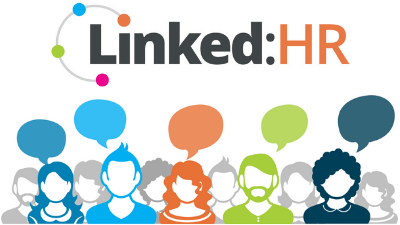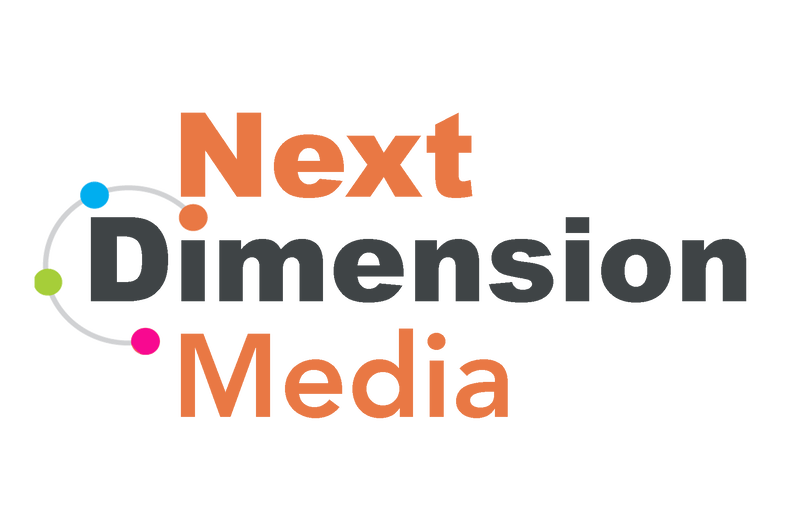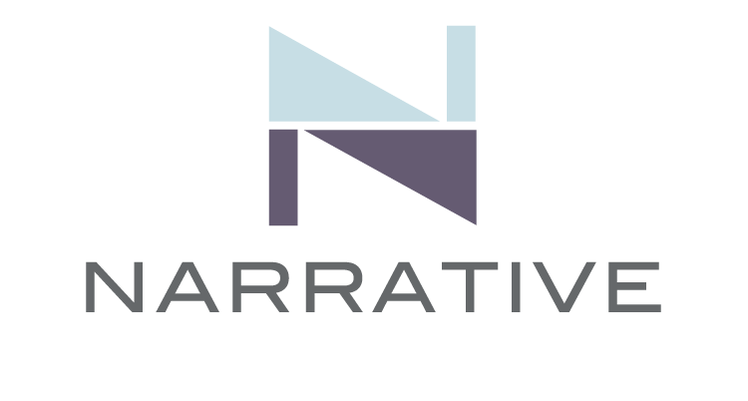|
Since March of last year, I have worked from home, much like many of you. The bright side: I get ready in minutes. I schedule meetings without worrying about commuting. I get to pet my dogs or take a break whenever I want. The not-so-great: I miss my family and friends. I want to see my students face-to-face, have dinner with them at Fernando’s, and run fun simulations that allow us to run through the corridors. I am ready to host my students for “Cris’ famous wings.” The line between work and home is now completely blurred. So yes - I look forward to a normal life. However, am I looking forward to my office? Parking? Worrying about professional clothes? Rushing from meeting to meeting? Driving home in bad weather? Not really.
Some interesting statistics:
As vaccine supplies increase, many of us are considering back-to-work plans. So here are my questions:
0 Comments
Thank you for attending my second Tech Talk! I hope you enjoyed the session. I enclose, below, a copy of my presentation. You may also download the PDF file HERE.
Here are links to the tools I mentioned in the presentation:
Tech Talk II RecordingA while back, I wrote a brief article entitled "How to Disengage your Employees in Seven Easy Lessons." The lessons were:
Recently, I have been thinking of an eighth "disengagement lesson": Make sure your employee feels not trusted. Let's start by what trust means. Trust is a multifaceted construct. For example:
The first set of examples has to do with the other person's characteristics (according to your perception, of course). Item 2 relates to your personality and cultural background. Item 3 relates to the cultural environment. When organizations have a low tolerance for even small mistakes, the result is often widespread mistrust. Of course, the problem is that all these trust components interact with one another. For example, you could mistrust someone's competence because you are terrified of the consequences should the person make a mistake. You could be leery of a person's integrity because you tend to mistrust almost everyone. What does all that have to do with engagement? William Kahn's landmark article Psychological Conditions of Personal Engagement and Disengagement at Work suggests that engagement relies on three critical components: meaningfulness, psychological safety, and resource availability. Kant argues that trusting relationships connect to psychological safety. He writes: "Interpersonal relationships promoted psychological safety when they were supportive and trusting. Such relationships had a flexibility that allowed people to try and perhaps to fail without fearing the consequences" (Kahn, 1990, p. 708). I would argue, though, that trust relates to all psychological engagement conditions. Meaningful work is one in which one feels valued and valuable. An employee is unlikely to feel "valued" in a low trust environment. In particular, one cannot have one's integrity questioned and feel "valued." Likewise, resource allocation depends on trust. If my leaders do not trust me, they will not share the critical information I need to perform my duties. So, here are my questions to all of you:
I know it's not easy to trust a large number of employees. I am also a realist; I realize some people lie. The conundrum, though, is: Might you be disengaging your best employees to prevent those who - let's face it - you might not want in your organization in the first place? I'm curious about your thoughts!
Today I ran my first Tech Talk to Linked:HR members. I had a blast and I hope the attendees enjoyed it too! I hope we have many more of those informal learning activities.
Since the time was so short and I felt I didn't get to the more detailed discussion of pros and cons I wanted to have at the end, I recorded myself again. I also thought the recording would be helpful to colleagues who could not attend. Please feel free to share. Below are the links of the tools I mentioned in my presentation:
RecordingCanva PresentationDownload the PDF slides
Thank you to all the members who responded to Mel Wildermuth's questions on Linked:HR:
I just finished teaching a January term course: Ethics, Leadership, and the Game of Thrones. The class ended with two days worth of student-led and student-created ethics games and activities inspired by the world of Westeros. One group led an Ethics Pictionary game. Another designed a fun activity in which we moved from one side of a virtual room to the other to make ethical decisions. Yet another created a "Walk to the Wall" game. Players examined moral dilemmas while being forced to decide whether to "walk to the wall" and take "the black" (a reference to the Night Watchers, characters in the Game of Thrones series) or escape. We played the Ethics Game of Thrones Monopoly and the Ethics Game of Thrones Shoots and Ladders. We laughed. We discussed the advantages and lessons learned from each game. And at the end of it all, I dressed up as Daenerys Targaryen and read a speech in High Valyrian.
One may wonder, "Why would you use Game of Thrones in an ethics course, or why would you play games with such a serious topic?" My answer: First, because it works. According to a study by Jones, Mason, and Jones (2016), we learn better, have more focus, and recall more information when we play. As my students competed to "free Ned Stark," another beloved Game of Thrones character, they were less distracted. They devoted their energy to the activity because it was engaging. And as they focused, they also discussed ethical dilemmas, applied class concepts, and helped their peers learn. Stuart Brown says it best in Play: How it Shapes the Brain, Opens the Imagination, and Invigorates the Soul (2009): "Of all animal species, humans are the biggest players of all. We are built to play and built through play (p. 4)." Despite the importance of play, games are often discouraged in the workplace. For example, I teach a course on instructional design. In that class, I teach students how to design workshops based on a theme (such as Game of Thrones), reimagine board games for instructional purposes, and design adventure simulations. Students who work in more traditional organizations enjoy the activities but doubt they will apply what they learned at work. "This would never fly in my company," they explain. They tell me that they must observe rigid format, content, and time constraints. "Playing" is unacceptable. Students also worry about their reputation. Serious adults behave and act like adults. At work, we do not play games, imagine different worlds, or indulge in make-believe characters. We leave play for children. And early on, young professionals learn that playfulness is a career killer. Today's question: How can we integrate play in the workplace? Think not only of training and education but other everyday workplace activities such as meetings, strategic planning sessions, and even project management. Life is short. Sure, we all must work but... why not have a main course of work with a healthy side of play? I just had a time-management session with my daughter Maggie, a genius at making messy schedules work. Maggie does not only teach me time management. She makes sure I stop working and take breaks. She teaches me what passion looks like. And, on top of it all, she is the best listener I've ever met.
As I think of my daughter, I realize something important. It doesn't only "take a village" to raise a child. It takes a village to teach us the lessons we need to navigate life. Our teachers are not just leadership development professionals, organizational leaders, pastors, or coaches. They are our loved ones, our family members, our friends. They are the composers whose songs reach us just at the right time. The writers whose brilliant books combine just the right words. The movie directors and actors who bring brilliant stories to life. Right now, The Game of Thrones is my teacher. George R. R. Martin, all the show directors, all the actors - they teach me about leadership gone bad, human complexities, and moral dilemmas. The Game of Thrones also teaches me to be playful in my teaching; I use the series as an inspiration for a class I am teaching now. Why not discuss Kantianism by exploring the adventures of one Ned Stark or apply Utilitarian principles to Lord Varys' pragmatic actions? My students are my teachers. They teach me through their blogs, discussions, and reflections. They teach me when they smile, clearly enjoying a class activity. They teach me when they look bored or tired. They teach me that learning requires involvement and interaction. Learning is an active affair. My husband is my teacher. He teaches me not to fret about the small stuff. He teaches me to stop and enjoy the moment. To let life unfold without questioning it too much. Even my furry family members are my teachers. Friskey, the cat, teaches me to respect my wants and needs. Bambi, the playful little chihuahua, still a rambunctious puppy, forces me to stop working and start playing. And our big girl Buffy, a majestic Great Pyrenee-German Wireterrier mix, teaches me to be kind to little sisters, to be calm, to just live. My question to you: Who are the teachers in your village? Who helps you learn and keep growing? And what lessons did your teachers share today? Last week, the world watched, in horror, as a mob invaded the United States Capitol. A symbol of democracy, desecrated—the unthinkable, in front of our eyes. My heart is heavy. I can't erase the violence, the anger, and the disregard for what so many of us hold sacred. And that's ok. We must remember this week.
I grew up in a dictatorship. I did not vote until I was 25 years old. As a result, I do not take democracy for granted; I know it is fragile. I also know how easily a group of people can turn to violence. Irrationally. Dangerously. And blindly. So please forgive me, colleagues. Next week, I can write about HR again. I can invite you to a webinar or plan a conversation night. 2021 is a year of hope and renewal, and we can bring both to Linked:HR. We can become a stronger community, learn from one another, maybe even have a virtual conference. But today, I just hope we can all share strength, resilience - and outrage. Please comment: What do you think each of us - as a citizen leader - can do? This morning, my daughter Maggie taught me yet another lesson about leadership.
For the past year, I have worked on an ethics education research project with another brilliant student, Maddy Kapel. Maggie had just received approval to join our research team. We added Maggie for technical reasons; we needed Maggie's help with the technical transcriptions. But then I looked at Maggie - who at 22 is becoming a better researcher than I am - and asked, "Hey, would you like to join the research team for real?" Her answer: "Why not"? Maggie explained her research experience so far has been a never-ending pattern of "why nots." On a "why not" note, she had joined a Toxic Leadership research project and gotten a paper published. Following the "why not" philosophy, she agreed to present at the International Leadership (ILA) Conference on Leadership and Courage. Then she joined the Student Case Competition at the ILA on Supporting Leaders Experiencing Mental Health Issues. Her next project? She is now planning a fascinating presentation on Leadership and Mental Health with two outstanding young professionals, Ngozi Igbokwe and Sarah Smith. How she got into all that? Two words: "why not"? Sure, we need plans and new year resolutions, and strategic meetings. Sometimes, though, the path is too misty, and planning becomes impossible. The environment changes too fast. Connections between disparate fields can boost our brainpower, make us soar, bring puzzle pieces together. "Why not" sets us free from self-imposed boundaries, sparks creativity. To my daughter Maggie: You are a young woman with a future ahead of you. You are humble and kind and brave; you teach me something new every day. Today's lesson? Stop all this planning and fussing and worrying. Join the "why not?" generation. What about you? What's your "why not" moment?
I first saw a computer when I arrived in the United States in 1992. My husband Mel and I had just gotten married in Rio de Janeiro, and I came straight to Bowling Green, Ohio, a university town. In Brazil, I ran a small business with my sister; I was a literary agent. We had purchased two little electronic typewriters and owned a fax machine that felt like magic. I still remember the faxes arriving from Japan at 4 in the morning, the buzzing of the paper in my bedroom.
In those days, the word "computer "meant the gigantic machines my brothers talked about; both of them had studied systems engineering. My brothers brought home piles of paper with little holes on each side. I wasn't particularly intrigued; the computers seemed too far away from my world to matter. Computers started "mattering "when my sister and I were asked to find Brazilian publishers for a series of "Norton "books. I had no idea what Norton meant. We scheduled a meeting with our client to understand what on earth we were about to sell. That was the first time I heard the word "Windows." What is "Windows"? I asked our client. He said it was an environment. He might as well have described a planet in a black hole. Luckily, my ignorance didn't matter as we quickly found a publisher for the Norton books. Someone out there knew what I did not know. By the time I arrived in the US, ordinary people - academicians, students, business people - already owned personal computers. Mel and I started our masters, and his brother loaned us a little laptop. I purchased a set of k7 tapes that taught me how to use Wordperfect 5.1 and still remember the excitement of pressing keys and seeing letters become bold or italic. Finally, I had figured out what Windows meant. Mel and I introduced our baby daughter to computers as soon as we could. We owned a Tandy, a bulky machine with a relatively small screen. One computer for the entire household, something that these days would feel unthinkable (between the three of us, we own five computers). We purchased a series of educational CD-ROMs; one of them was for toddlers. Maggie loved the game, she would click on buttons, and little chicks jumped while other animals made noises. She grew up playing with our Tandy and typing on her Leapfrog book to hear words and music. I often hear the old saying, "you can't teach old dogs new tricks," when discussing technology and generations at work. I smile because older dogs learn tricks all the time. They just need to be motivated. And, as much as I love my furry family members, I'm not a dog. Besides, people my age, who did not grow up with computers, were still in their late 20s or early 30s when the revolution took hold; when k7 tapes taught us how to use WordPerfect 5.1. If my 89-year-old mother can work with her iPad, communicate via WhatsApp on her iPhone, and write a little memoir book using Word, I can learn new tricks. These days, my colleagues at work call me the Tech Toys Queen. You need free or relatively cheap software to do something in communications, training, teaching, or time management? Ask Cris. My students laugh because if they ask for one tool, I share ten or more. I have an Excel spreadsheet with so many tools I need to find a fresh way to keep them straight. There must be a tool for that. How did I become the technology queen starting from an electronic typewriter, WordPerfect 5.1, k7 tapes, and Tandy computers? And what does all that have to do with leadership?
Leadership, Curiosity, and the Power of Not Knowing
Leaders are brave. You can't lead if you are not courageous enough to jump into the mist and see what's there. You can't lead if you always need someone to teach you. Few people have crossed the misty borders; those who have may be too busy to guide you. Leaders brave the mist and train their eyes to see in the darkness.
Leaders are curious. They love the thrill of the mysteries beyond the mist. Leaders feel exhilarated when discovering a new Windows environment in a machine they had never seen before; they seek new toys when they have barely figured out how to use the old ones. Leaders are eternal Christmas toy grabbers, opening package after package. Leaders are passionate. You can't bring people into your world if you say, "Hey, there's work to do, it's boring as heck, but follow me anyway for another day of drudgery." Instead, your eyes shine, and you tell people you discovered something magical, and you ask them to go with you - not follow you. You do not invite others to see your magic; you ask them to uncover their own. Leaders accept failure. You can't fear failure and conquer new worlds at the same time. New worlds have new rules, new vocabulary (What is Norton? What is Windows?), different cultural connections. New worlds are challenging at first; mistakes are inevitable. If you want to be a leader, you must tolerate your fallibility and build resilience. The image of a leader who "messes up "fascinates me. After all, when we think of leaders, we imagine people who always get things right. We see successful people who built technology empires. Leaders surely can't fail. But leaders fail repeatedly; the moment they stop failing is also the moment they stop trying. Finally, leaders accept not knowing. When leaders stop, the mist dissipates, and the world is now clear to everyone else. If you want to be a leader, you must become comfortable with ignorance.
You know nothing, Jon Snow
A perfect example of the leader who "does not know "comes from my favorite TV series, HBO's The Game of Thrones. In the Game of Thrones' second season, the show's main hero, Jon Snow, goes beyond the great Ice Wall that protects the seven kingdoms. Once there, he meets the "wildling "(a name given to the people who live beyond the wall) Ygritte. Ygritte laughs at Jon's ignorance and constantly says the famous words, "You know nothing, Jon Snow."
Jon Snow knew nothing as he faced a new frozen territory where there were giants and terrible zombie-producing creatures. Jon Snow knew nothing and would still know nothing if he hadn't gone past the wall. As Jon walked with Ygritte, he was clumsy and made mistakes. He didn't know how to do things that came quickly to Ygritte and her fellow wildllings. And yet, Jon Snow seemed eager to brave this wild world of ignorance. Leaders, like Jon Snow, are comfortable with always knowing nothing.
Learning and Technology: Would you like to learn more?
Here is a shameless plug: If you find technology fun and would like to learn new tricks, consider enrolling in my Technology and Learning course this spring. You will work with a number of fun new tools, most of which are either free or low cost. The course is online, so you can live anywhere. And, better still: You may take the course even if you are not interested in an entire master's degree. At my program at Drake University, students may complete up to two courses on a "visiting student" status. On top of it all: HR professionals will be happy to know Drake University is a SHRM certification credit provider, so you will earn valuable SHRM credits with the course.
The syllabus is below. If you are interested, please contact me for details. |
Dr. Cris WildermuthDr. Cris Wildermuth is Linked:HR's Community Leader and an Associate Professor at Barry University. You may find out more about Dr. Wildermuth's leadership development, ethics, and intercultural development consulting practice at THIS PAGE. Archives
March 2021
Categories
All
|
Thank you to our Sponsors!
Would you like to support Linked:HR? Consider becoming one of our sponsors! Your logo and services will be displayed in our page. Additional business services are available to our sponsors. Please CLICK HERE for additional information.
|
|

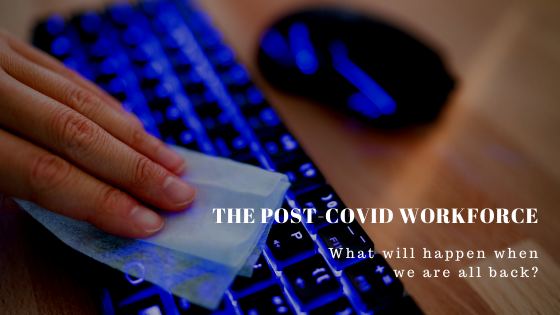

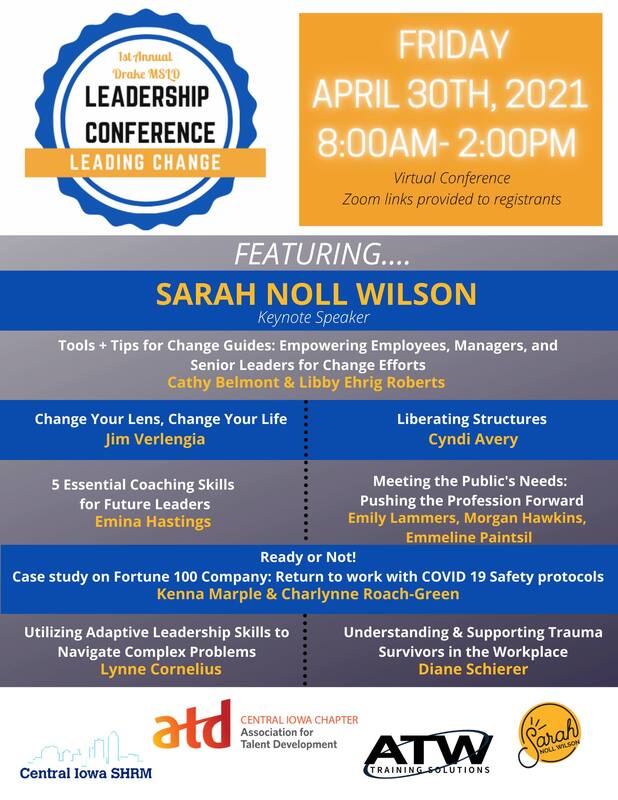

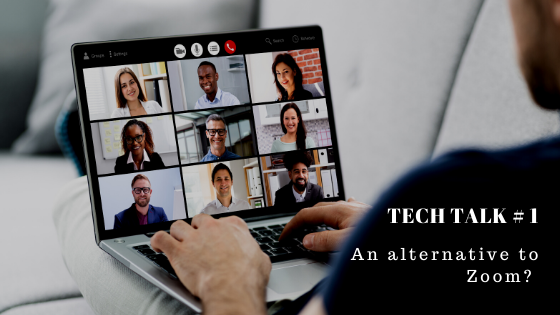



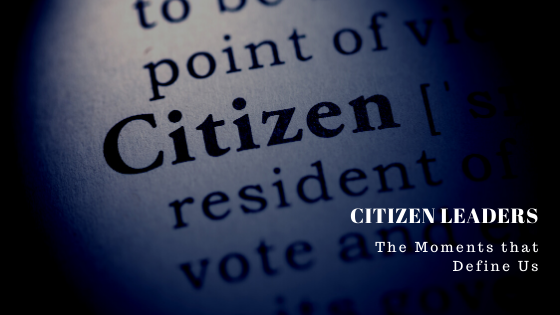

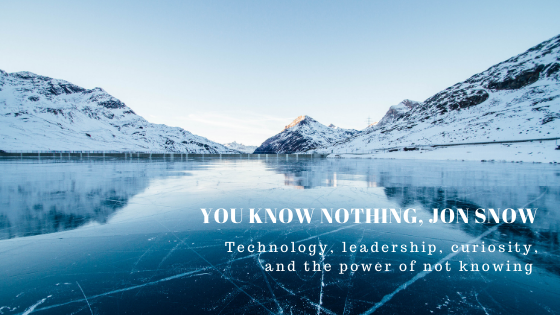
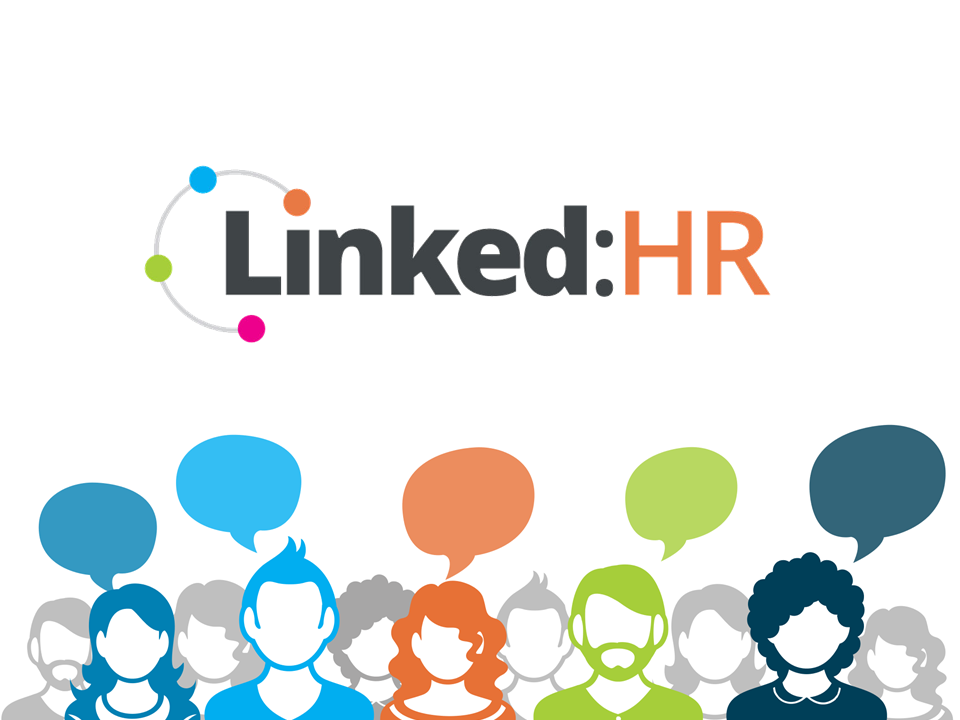
 RSS Feed
RSS Feed
